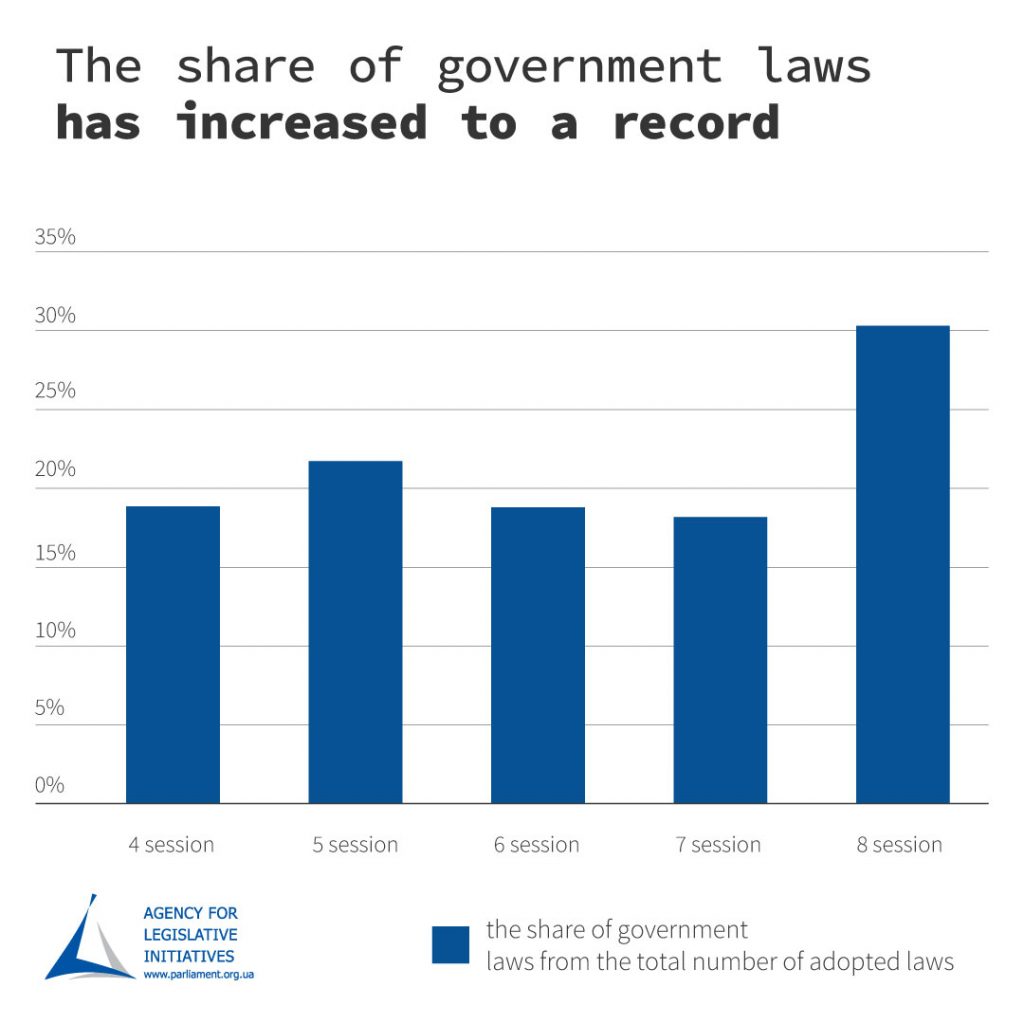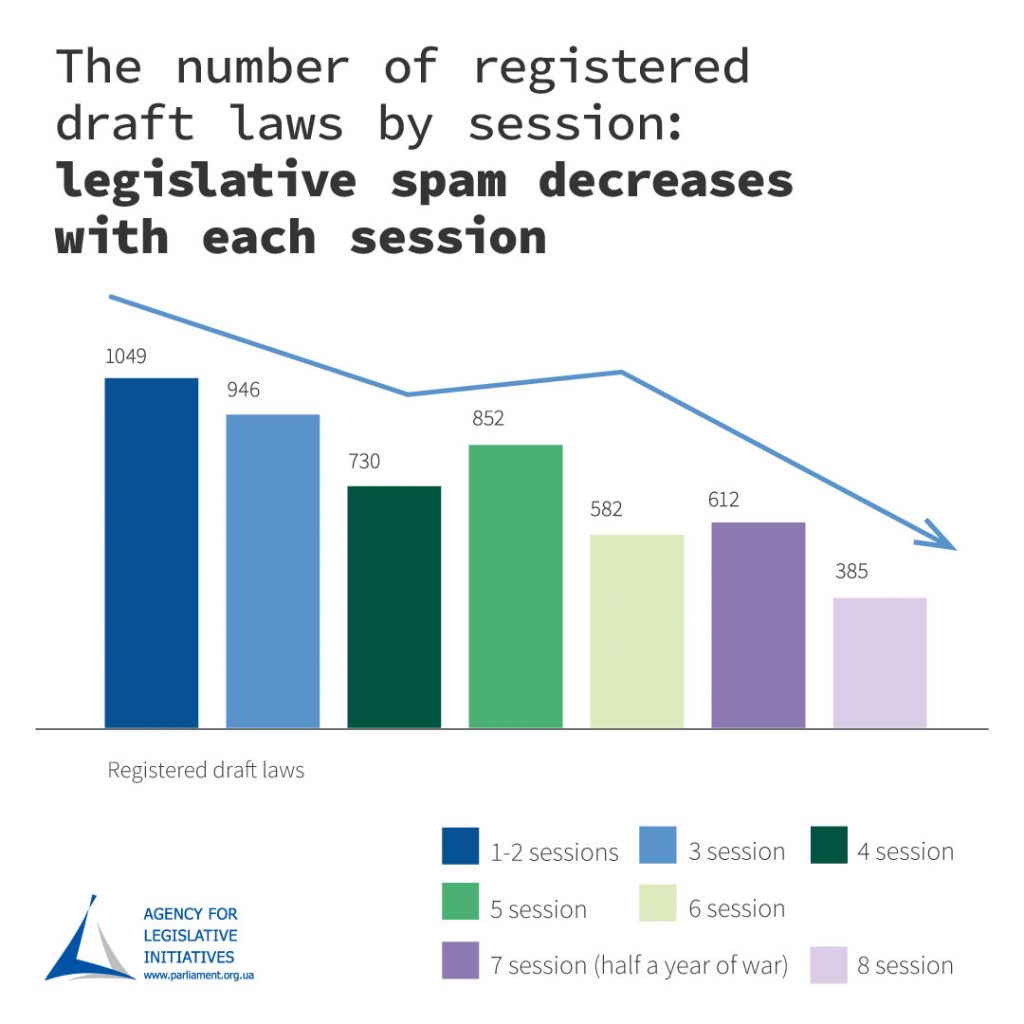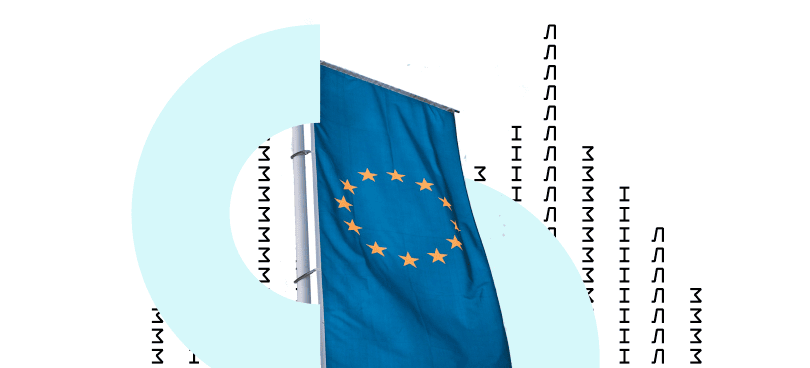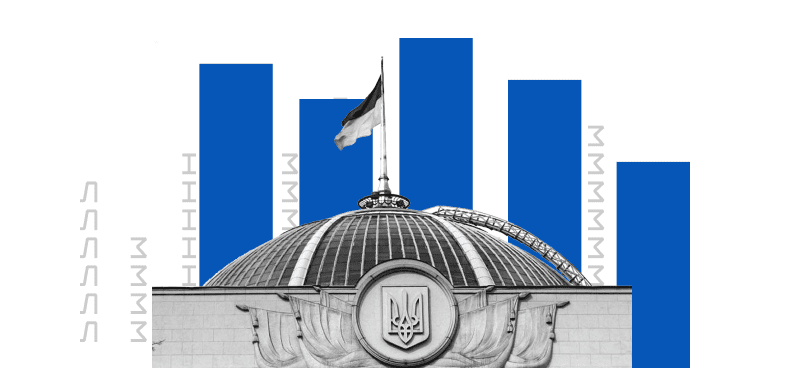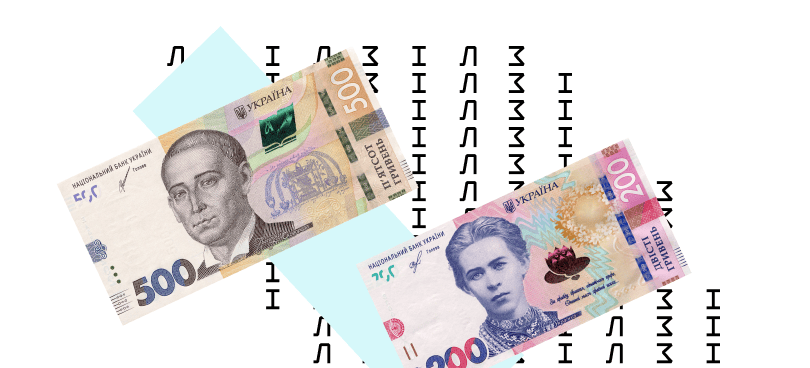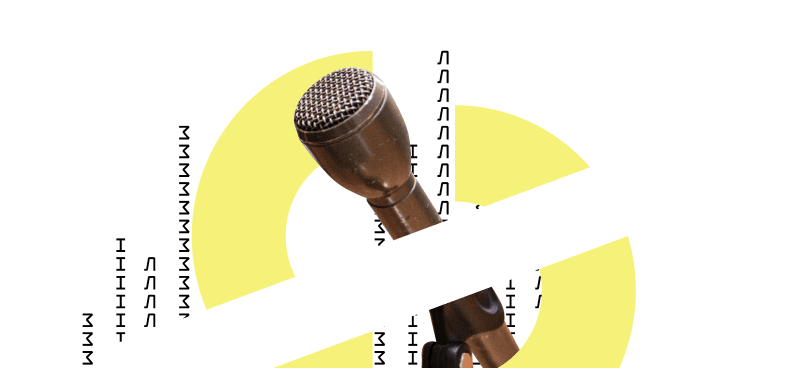Article by ALI for “Dzerkalo Tyzhnia” (Mirror of the Week newspaper)
After a year and a half of a full-scale invasion, Ukrainians have adapted to living under a constant threat. State institutions, the parliament, in particular, were also stabilized. This is evidenced by quantitative data from the last monitoring of Verkhovna Rada by the Agency for the Legislative Initiative (ALI).
We shall begin with some general numbers. During the 8th session (from September 2022 to February 2023), 385 draft laws were registered, 207 draft laws were considered, and 138 were approved/ratified. 29 hours of plenary time were spent in the assembly hall to consider draft laws. The Committees provided 405 conclusions on draft laws. Now let’s dive into the conclusions hiding behind these general figures.
In particular, we see three main tendencies: strengthening the government’s positions, reducing legislative spam and stabilising the work of parliament in wartime.
Strengthening the government’s positions
What signals about the strengthening of the Government’s positions is the fact that the Cabinet of Ministers started actively using the right of legislative initiative — 30% of all laws approved during 8th session were initiated by the government. This is the record for their entire 9th convocation of the parliament.
Unlike MPs and President, the Government began to move their draft laws faster in the second reading. The part of registered acts has also risen — from 10.1 to 14.5%.
A quick reminder that there are only three actors in a lawmaking in Ukraine — Members of Parliament, Government, and the President. Usually, in Ukraine, the MPs play a crucial role in lawmaking — they register the most bills, particularly the ones that will later become laws. International and Ukrainian experts think this situation is distressing and recommend switching to Government-centric model. These recommendations are based on the fact that the Government has better expertise and understanding of the mechanics of implementation and financing of a particular law. The government-centric model is also actively discussed within the framework of the parliamentary reform. The tendency to strengthen government positions in the legislative process during the 8th session of the Verkhovna Rada resonates with the idea of forming a government-centric decision-making model.
Decrease of legislative spam
During the 8th session, 385 draft laws were registered. If we compare it to the similar 6th session, the number of registered draft laws per session has decreased by almost 200. A reminder that at the end of the 8th session, there were 409 MPs. For the first time during 9th convocation of Verkhovna Rada, the number of registered drafts per session is fewer than the number of Verkhovna Rada MPs.
For the time being, in general, one MP initiates 0,94 bill. Until the 8th session, MPs, in their law-making behaviour, mostly followed the principle «the more draft laws, the better the MP». Some even focused on the ratings of deputies-legislators. However, writing, proceeding and approving one worthy law is better than 10 «bad ones». «Bad» laws usually don’t work and need new legislative changes to make them work. Laws that have undergone the procedure of two readings are typically better than the ones hastily passed in one reading.
Of course, not all badly prepared draft laws are passed through, but all of them take up resources from Verkhovna Rada, as they should be reviewed and developed by committees and analytical units of the parliament. Meaning because of legislative spam, Parliament wastes its resources instead of improving important draft laws. Fewer registered acts allow more effective usage of Parliament’s assets.
Stabilisation of the work of the parliament in the wartime
The work of Verkhovna Rada was stabilised, normalised, and some procedures even accelerated compared to the first semester of a full-scale invasion, when the society watched a true turbo mode unleash in the Parliament. This stabilisation gave an opportunity to partially return to the initiatives that were discussed in Parliament prior to 24th February 2022.
Verkhovna Rada remained focused on the same topics as the first semester of wartime mode. The busiest committees of this session were Finance Committee, Law Enforcement Committee and National Security Committee. This means that national security, defence, and its financing remained the priority of Parliament during the 8th session.
Two thirds of laws were adopted by the two readings procedure. Although during the first semester of wartime mode, only one third of laws got through two readings. Meaning Verkhovna Rada could adapt work in a way that important draft laws were considered and processed for a longer period of time, which usually means more sophisticated laws as an outcome.
Two thirds (up to 63%) of laws during the 8th session were adopted, violating the legislative process. This reminds of a situation that we observed the first six months after the full-scale invasion. Violations of Regulations of the Verkhovna Rada were usually related to the speed of the adoption of laws. The high pace of passage of draft laws comes at a price — their processing is worse.
Quantitative indicators analysed by the ALI team show only the tendencies of the Parliaments pace of work. They are not to be considered as evidence for increasing or decreasing quality of adopted laws. The apparent strengthening of the government’s positions does not cancel the complete dependence of the Cabinet’s policy on the decisions of the president’s office. However, even from the described trends, it can be concluded that the work of parliamentarians has stabilised. Legislative initiatives during the 8th session were worked out more thoroughly, were less spammed, and more attention was paid to the proposals of the Cabinet of Ministers.
This article was prepared with the financial support of Sweden.

